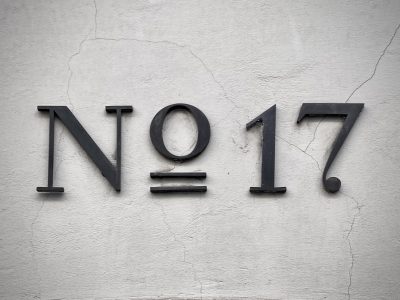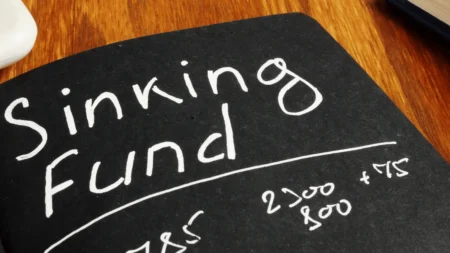Hate it or love it, income tax remains a huge source of revenue for the Canadian government, like many other governments around the world. It is also the primary source of revenue for all of Canada’s provinces and territories. However, the jewel in the crown is the personal income tax, which brings in triple the receipt of the corporate income taxes.
What is income tax?
Income tax, simply put, is a tax imposed on individuals or entities according to their respective incomes or profit.
So how does Canada generate this massive revenue in income taxes? Well, the federal government of Canada acts as the personal income tax collector for all provinces and territories. It also goes further to collect corporate income taxes for all provinces and territories except for Alberta. And the agency directly in charge of managing this tax revenue is the Canada Revenue Agency, popularly known as the CRA.
Legal Authority
The Income Tax Act gives the Canadian government the legal backing to levy these taxes on taxpayers, individuals, and corporate bodies alike. The provinces and territories each have respective legislation for collecting these taxes.
Operation
Canada, just like the US, operates a self-assessment income tax system. This means that each taxpaying individual is responsible for calculating and filing their taxes based on their annual income. These taxes must be submitted before the deadline, as stipulated by the CRA.
Once you file your taxes, the buck stops with the CRA to assess your returns based on the information it has obtained from your place of employment and other financial companies where you carry out transactions. It uses this information to ensure your income taxes are filed correctly, often making adjustments where there are glaring errors.
Nonetheless, any individual who isn’t too pleased with the CRA’s assessment can challenge the tax evaluation by appealing to the CRA. The consequence of an appeal is for the assessment to be vacated, varied, or confirmed. If the individual is still unsatisfied, an appeal can be further lodged with the Tax Court of Canada, going all the way up to the Federal Court of Appeal.
Personal Income Tax
The government of Canada collects personal income tax on all the income earned all over the world of taxpayers resident in Canada, including specific types of Canadian-originated income of individuals who do not reside in Canada.
Part I sub-paragraph 2(1) of the Income Tax Act is instructive. It states thus:
“An income tax shall be paid, as required by this Act, on the taxable income for each taxation year of every person resident in Canada at any time of the year.”
Once the calendar year runs out, each Canadian resident is required to file a T1. If you’re an employee, your T1 is due on the 30th of April. Self-employed residents may submit their T1 before the 15th of June. Your taxes are based on the total taxable income minus allowed expenses for the year. There are a few ways to collect Personal income tax, which include:
- Source deduction – income tax is directly taken from an individual’s paycheck and credited to the CRA
- Staggered payments – the individual continuously pays their taxes throughout the year instead of a one-time fee at the end of the calendar year
- Pay-as-you-file – these are payments made together with the income tax return
- Arrears payments – payments made after filing your returns
Taxpayers who end up paying more for their taxes than they’re supposed to receive a refund from the CRA after filing their annual tax returns
Corporate Income Taxes
Excepting Alberta and Quebec, the CRA collects the corporate income taxes for all territories and provinces subject to their respective tax legislation. Any territory or province in agreement with the federal government must use the federal definition of the meaning of taxable income.
Although Quebec and Alberta collect their own provincial corporate income taxes, the system is similar to the federal government for the convenience of the taxpayers.
How to file your Income Tax Return
The CRA has many options to file your corporate and personal income taxes. Some of these are:
Electronic Software
A list of CRA-approved software on desktop and mobile platforms enables you to file your income tax electronically. You can use some of this software for free.
On Paper
Although not as convenient as the above, the CRA will mail you your income tax package to enable you to do your taxes.
You also have the option of downloading the forms yourself here.
File my Return By Phone
For only eligible individuals, File my Return lets you use the automated phone service to complete and file your tax returns by phone without charge. However, this service is only for qualified Canadians with low or fixed incomes whose annual incomes hardly change from year-to-year.
The Community Volunteer Income Tax Program
If your tax situation is simple and straightforward with a modest income, you can be eligible to use the tax clinic, where volunteers work out your taxes for you for free. You can learn more about the free tax clinics here.
Canada’s Income Tax Brackets
The amount of income tax you pay depends on your earning power. The more you earn, the higher your taxes. The bracket system is a graduated system with increasing percentages on different portions of your income.
- For the first C$48,535 of your taxable income, you pay 15% in income taxes.
- For the next C$48,534 that you earn on the portion of your income above C$48535 up to C$97,069, you pay 20.5% of that portion in income taxes.
- For the next C$53404 that you earn on the portion of your income above C$97,069 up to C$ C$150,473, you pay 26% of that portion in income taxes.
- For the next C$63,895 that you earn on the portion of your income above C$150,473 up to C$214,368, you pay 29% of that portion in income taxes.
- Any other income above C$214,368 is levied at 33%.
It is pertinent to note that each territory and province has different tax brackets. It is good advice to consider the tax brackets where you live before you do your taxes.












